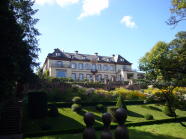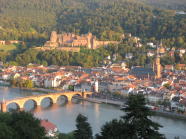General Outline of "Knowledge and Digital Technology: Spatial Relations in a Digital Age"
Development happens as a society undergoes structural transformation. Structural change in the culture, institutions, and technologies of a society is led by new ways of thinking, new knowledge and innovations. Although the latest wave of technological change, often referred to as the fifth Kondratieff cycle, has been transforming world society since the 1990s, innovative uses of digital technology have continued to yield deep-cutting and disruptive changes. Digitization has been central to shaping new ways of observing (e.g. by collecting big data and augmenting reality), knowing (e.g. supported by machine learning) and transforming (e.g. by automation and robotics) our life-world.
The relation between technology and knowledge is reflexive; technology is the fruit of human creativity and knowledge, while at the same time, it changes how we learn and what we need and believe to know. Given the ubiquity of digital geodata and navigation services, for example, what proportion of people can still find their way through unfamiliar territory with only a printed map and a compass and yet is such a skill still relevant? Digital technologies have been transforming the social and spatial relations of private, public, and civic society.
This 19th symposium creates a bridge for dialogue among scholars from the social, natural and technical sciences to consider the role of technological change in societal learning, human knowledge and the transformations that occur in the spatial relations of society and the economy. We invite participants to engage in a conversation on theoretical challenges, methodological approaches, and empirical research about the relation between technology, knowledge and space. Themes that are relevant for research and scholarly debate include, but are not limited to three issues:
- The relation between knowledge and technology. How will advances in digital technology, such as machine learning, affect how we learn, what we know, and what we believe to be knowledge? How do participatory media change human learning? How do new sources and magnitudes of data affect knowledge creation, and the corresponding processes of validation and interpretation? What kinds of knowledge become obsolete, and what types of new knowledge move to the foreground of human curiosity and exploration?
- The relation between technology and space. How do the digital and physical worlds affect each other? What are the opportunities and constraints for the spatial relations of society that arise from digital and remote interactions? How do digital technologies and business models affect the organization of the space economy? How does digital life disengage people with the environment? What is the environmental impact of massive digitization?
- The relation between technology and ethics. To what extent can society routinize and trust in automated screening, filtering and assessments based on algorithms and artificial intelligence? What are the ethical challenges that arise with cognitive and human enhancement? What is the future of intellectual property rights in an age of digital ubiquity? Who, for example, has the copyright of a book written by a machine learning algorithm? And how should copyright and royalties be distributed between the creation of new data and the improvements in the algorithms and business models that these data facilitate?





